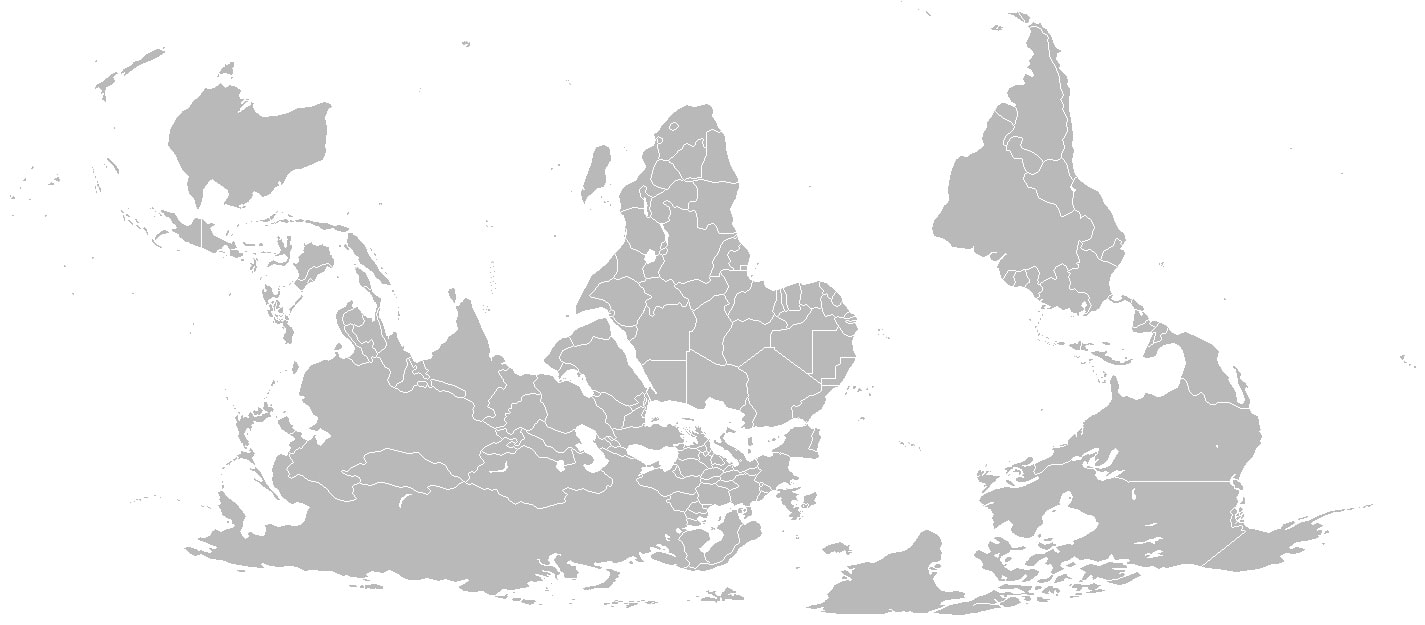I’ve been thinking about maps ahead of July 4th. Despite having many natives names, the American continents were stamped with the moniker of an Italian mapmaker, Amerigo Vespucci.
Just as in Vespucci’s time humanity came to understand that the Earth was round, you and I have had to learn that there are infinite perspectives on our globe. And that the map we studied in textbooks or often see replicated around us--perhaps the one that centers us, our perspective, enlarging us--presents just one, flattened viewpoint.
In Vespucci’s time, people were afraid to travel beyond the known map, because there were sea monsters way out or one long cliff into oblivion. Today, it seems, we’re subject to the same fears.
But seeing the world through new eyes, while disorienting, won’t make you disappear. Vespucci didn’t sail over a cliff, and you won’t either. The truth is that seeing another’s viewpoint illuminates your own.
In his poem “Song of the Open Road,” Walt Whitman claimed that encountering others and learning about their lives expanded the map of his own humanity. He wrote, “I am larger, better than I thought, / I did not know I held such goodness.”
The lateness of America is our ongoing failure to incorporate the diversity of our peoples into the mapmaking of our nation. The only greatness of America has been in our potential to do so. Even as one bloc of voters seeks to reduce this country to a Mercator Projection of mean distortion, that potential--though dimmed--endures.
I’m finding it hard to map my own hope in the United States right now. Independence Day? Who can claim independence in a nation where children are locked in concentration camps along the border, where racists wield power from the White House to the court house, where women are stripped of autonomy over their own bodies, where LGBTQ people are told that prejudiced religious “beliefs” have rights that trump their own, where science is disbelieved, where the free press is attacked, where guns infiltrate our schools and houses of worship, where the rich get richer, where military spending dwarfs all else, and where the so-called president is hateful, dishonest, and cruel.
Yet this fight--this fight that the American reality might live up to its American ideals--has always been there, beckoning our collective compass. The luminous James Baldwin wrote that “American history is longer, larger, more various, more beautiful, and more terrible than anything anyone has ever said about it.”
Writers like Whitman and Baldwin speak to us through the pains of history, helping us navigate our American struggle today: to know ourselves, know each other, keep striving.
Indeed, contemporary authors and artists are doing this work, too: inviting us into essential understandings of racial, gender, and cultural identities. The truth is that we have never had so many mapmakers at work in this country, and the number of platforms through which they can create--and we can access--their maps is unprecedented, too. If we can just set out, if we're willing to journey.
I am grateful each time writers, artists, friends, and neighbors show me the world through their eyes. They are my mapmakers, and they give me hope.
The political landscape is daunting, yet the frontier of discovery still exists in each of us, our own personal America that synthesizes and empathizes across the boundaries of individual experience.
Our national mythology would have us believe that the individual can travel this road to America alone, but the truth is that we only ever could get there together.

 RSS Feed
RSS Feed
